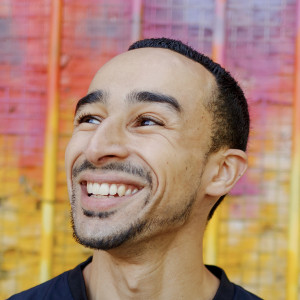Chapters
These days it isn’t uncommon to hear children swearing, and it’s not something that’s easy to prevent.
Whether they picked up swear words from their friends, parents, or some form of entertainment like music or a film, it’s impossible to control everything that they’re exposed to and what they pay attention to.
And it’s not only common to hear it on the streets or at home, but also in the classroom.
This is a problem, since it can proliferate instances of swearing, and normalise it among young students which will be an issue taken seriously by many parents.
This increase in children using profane language is due to a variety of factors as mentioned, but most of all because it is simply becoming more normal and less taboo for a lot of people in society.
However, swearing is still widely considered inappropriate in professional situations and this extends to the classroom.
Essentially, the purpose of school is to teach children how to be functioning human beings, both in the workplace and in their personal lives.
Therefore not allowing children to swear in class is essential for their personal and professional development, especially since many people don’t appreciate swearing and a lot of companies ban the use of profanity in the workplace.
So how can we tackle bad language in the classroom?
This is a topic that has prompted a variety of responses, the likes of which we’re going to explore in this article.
Whilst some schools enforce a strict zero tolerance policy on swearing, others are more tolerant of it, perhaps viewing it as a lost cause or simply choosing to prioritise other issues.

Where they Swear

Where the students are swearing is important and should affect how you deal with it.
Whether it’s inside the classroom or outside, each situation will require a different approach in order to be adequately dealt with.
It will also provide some insight into why the student is swearing, which can help if you have to discuss the issue with their parents at some point.
In Class
Swearing in the classroom is a serious issue, and one which ideally needs to be addressed swiftly in order to prevent it becoming a bigger issue later on.
Whilst some children will swear in class purely for attention or to be rebellious, others swear simply because they are still learning how to moderate their language, and aren’t accustomed to adjusting their language to suit different situations.
While this isn’t a completely faultproof logic, you can probably tell which are instances of innocent swearing and which are those with the intention of getting a rise out of the teacher in charge or get a laugh out of classmates.
In the first case, say a student accidentally uses a word they shouldn’t not quite knowing what it means, the best response is to calmly remind them that swearing in class is not appropriate, and perhaps ask the student to rephrase their sentence more appropriately.
In the second case, a more punitive approach may seem like the better course of action, since swearing is not something that should be taken lightly.
Perhaps sending the student outside the classroom or giving them a stern warning will deter them from swearing again in future.
Responding with anger is rarely a good idea.
If you respond to swearing emotionally, then you’re essentially giving power to the swear words you’ve heard, which might embolden other students to repeat them in order to get a rise out of you.
Likewise, if you’re too nonchalant or even just pretend not to hear the inappropriate language, then the student might continue to use it either out of ignorance or intentionally to be rebellious.
During Break

It can be best during break time to give a certain amount of leeway when it comes to minor swearing during break times; otherwise teachers would find themselves reprimanding children constantly.
Plus, a teacher who tries to enforce a zero tolerance of swearing may be seen by the children as overcritical and it perhaps isn’t the best use of their time.
It could also risk alienating the teacher from their pupils.
Break times are a period in which children need to relax and let off steam and be free to play around and express themselves as they wish.
So, as long as they are not using profane language to abuse each other, it’s not the end of the world if they swear occasionally during the break.
After all, it is better that children swear during break times than during lessons.
If the students can distinguish between being in a formal academic environment like the classroom and being outside, then this is a good sign that they know what’s acceptable and what isn’t in the school.
Of course, a line must be drawn when children are using swear words to insult each other or even a member of staff.
The context of the swearing is definitely important, as using swear words as part of speech is significantly less offensive than using them to insult others.
Equally, a child may be rude to a teacher or mean to a classmate without uttering a single swear word so this should be taken into account too.
How to respond to serious cases
A common reason why children swear is because it is considered ‘cool’.
This is part of the reason swearing spreads around schools. A lot of this is due to the reaction of adult figures in their lives too. Since it is something many adults would respond very negatively too, children know that they have some power if they use swear words.
As a result, if things aren’t going their way at school or they want to be the class clown, then they can use the very words which they know will cause some kind of reaction from the authority figure in the room.
Therefore, if you have to seriously reprimand a child for persistent swearing it is best to do it in private, so that the child does not have an audience to play up to.
Tell them to stay behind after the class ends or find you during you office hours, and you can have a serious conversation with the student without an audience. A lot of the time you’ll find that the student is quite apologetic in these situations, and only swears to impress their friends. Having one on one meetings with the swearing students is as such an effective way to stamp it out.
If you’re a parent and you’re concerned about the amount of swearing that goes on in school then you should try to have an open conversation with your child about their experiences of swearing in school, to gauge what the school policy is and how pupils feel about it.
Also, don’t hesitate to contact your child’s tutor for information regarding the school’s official policy on swearing.
Can swearing be used as a learning resource?

While it may seem odd, the swearing that causes so many issues in schools can actually be used as a valid learning resource.
For example, teaching children Shakespearean insults has been successful in getting students interested in Shakespeare, as well as making it more accessible for them.
Indeed, Sarah Swann advocates getting children to throw Shakespearean insults at each other as a class activity. She points out that this may be used as an opportunity to get the students thinking about staging and performance.
This same tactic may be applied to learning modern languages in order to engage students in the lessons, but using comical and more harmless ‘rude words’ rather than vulgar swearing.
If students learn to appreciate swear words from an early age and know when is and isn’t an appropriate time to use them, then this can set them up well in later life.
You can use a similar tactic that is sometimes used with introducing children to alcohol from a young age.
In some countries like France and Italy it’s perfectly normal for a child of a certain age to try a sip of wine at the dinner table, and there is no stigma around it.
As a result, you could argue that many people in the countries have grown up accustomed to alcohol, and so aren’t as tempted to see it as this forbidden thing which they want to over indulge in whenever they can.
It’s just a fact of life that the more you tell someone (especially a child) that they can’t have something, the more they’re going to want it.
So if you find a good way to normalise swearing in the classroom, and have the approval of the students’ parents, then it can be an educational experience that introduces students to the appropriate uses of swearing.
This is one of the best strategies for taking away the power students have to use swear words to hurt others and get a reaction out of teachers.
So there is a positive to be found in this issue of swearing in class.












The child that swears at school uses it in every day language, his parents use it the same way, I get so frustrated because the other children at school are picking up his awful swear words and using them, we have specialists in to observe him, their time would be more wisely spent in the child’s home.
We should allow students to swear instead of putting them in detention for it. 🙂